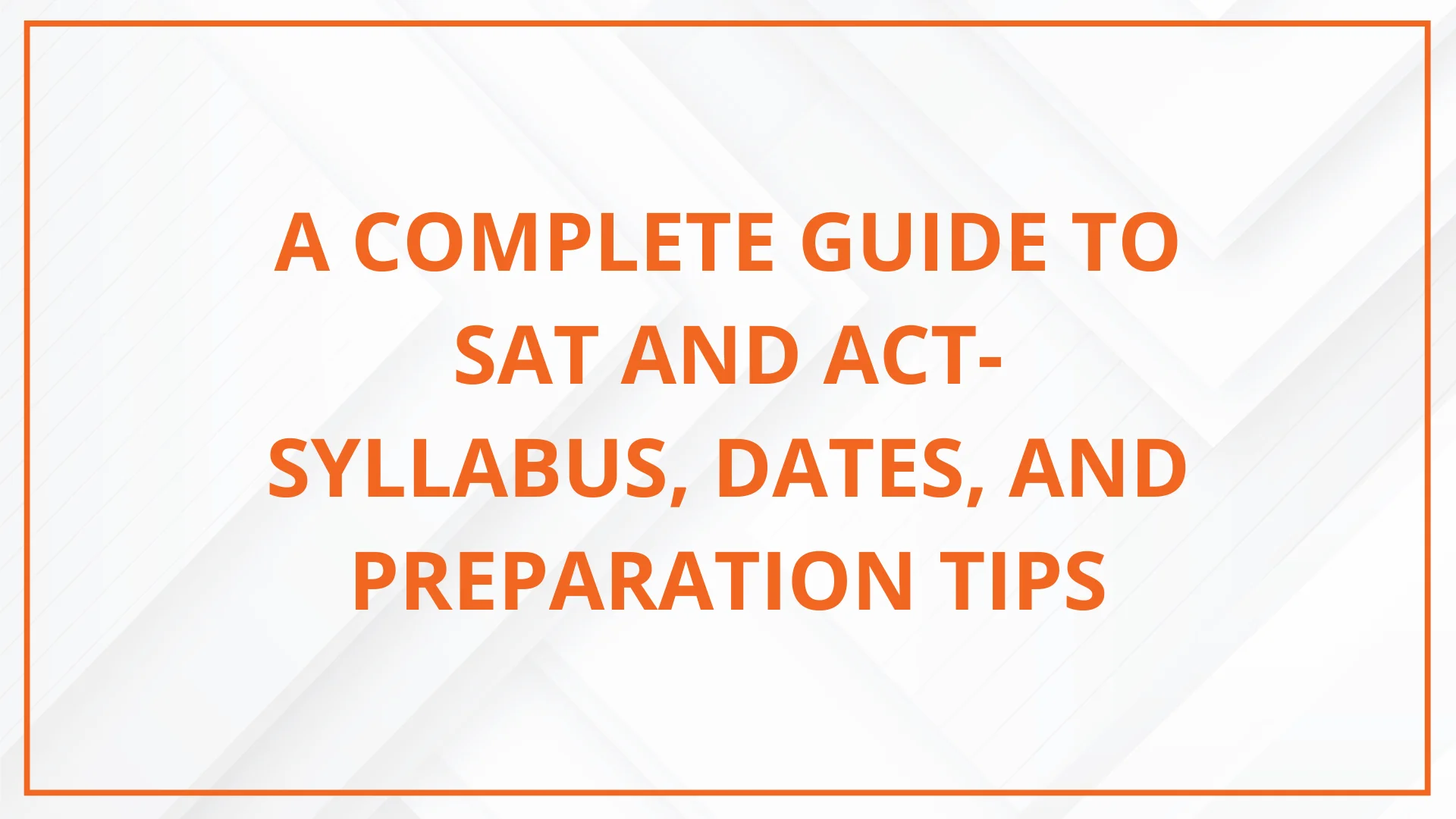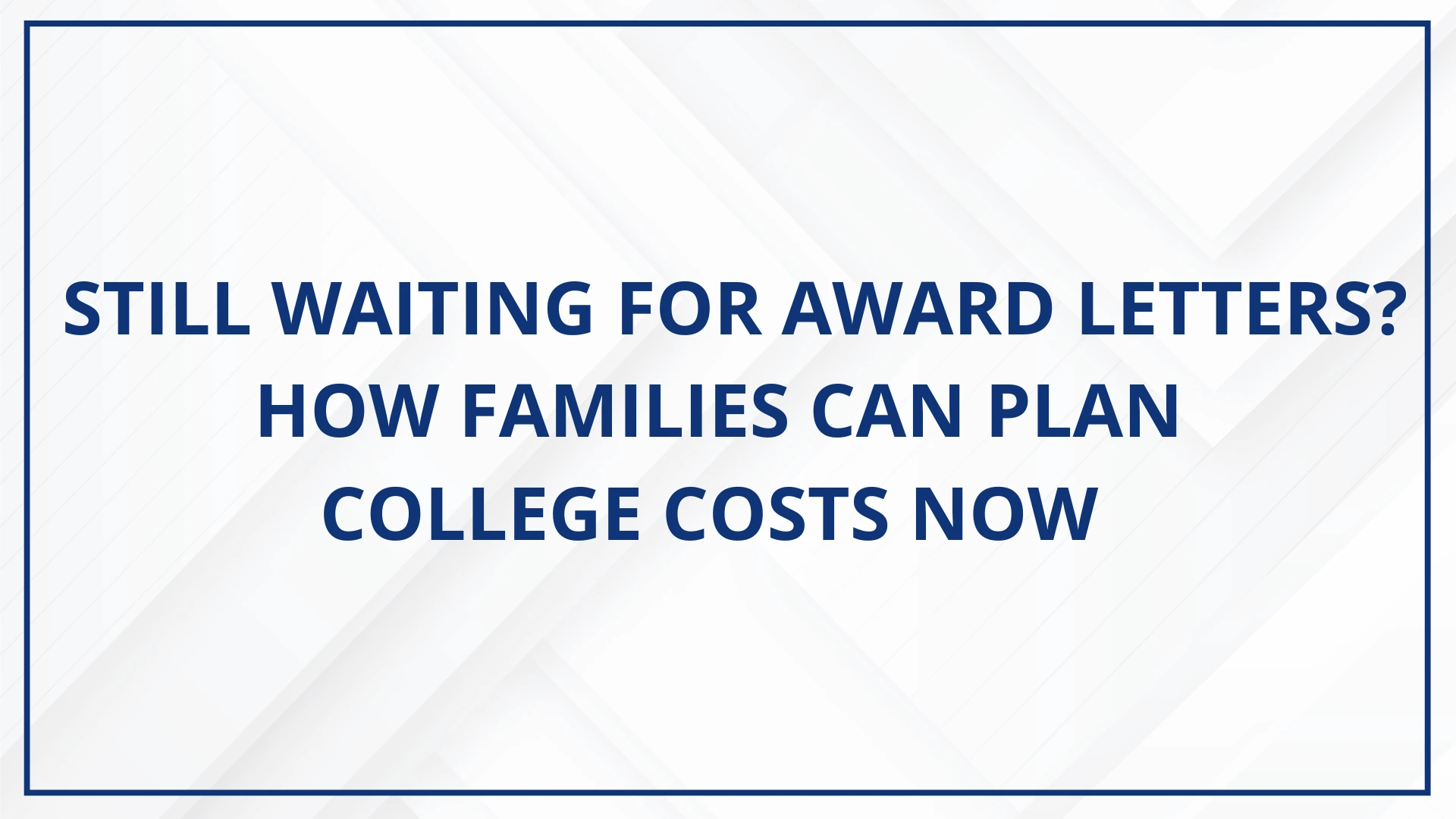A Complete Guide to SAT and ACT-Syllabus, Dates, and Preparation Tips
The Scholastic Assessment Test (SAT) and the American College Testing (ACT) are standardized tests whose scores are required by most colleges and universities in the U.S. as part of their application process. Additionally, some state universities also require SAT and ACT scores as eligibility criteria for granting scholarships and financial aid. Therefore, achieving a good score on these tests is essential for prospective students.
Continue reading to learn more about the SAT and ACT, its syllabus, how to prepare for them, and upcoming registration dates.
What is SAT?
The SAT is a standardized test that is used to assess a student’s readiness for college. While not every college requires SAT scores, many top-tier institutions still consider them as a part of their admissions process. A good SAT score is often believed to provide insight into a student’s academic capabilities. Therefore, if you are aiming for a specific college, it’s important to focus on your SAT score.
SAT SYLLABUS 2024:
If you want to score good on the SAT, you must be aware of the SAT’s 2024 syllabus. The new syllabus of SAT is given below:
| Sections | Modules | Total Questions | Time Allocated per Module | Total Time |
| Reading & Writing | 2 Modules in each | 54 questions (27 questions from each module) | 32 minutes each | 64 minutes (1 hour 4 mins) |
| Math | 2 Modules in each | 44 questions (22 questions from each module) | 35 minutes each | 70 minutes (1 hour 10 mins) |
The total duration of the test is 2 hours and 14 minutes, with a 10-minute break given to students between sections.
Total Score Calculation: Reading and Writing Score + Math Score
SAT Math Syllabus:
It consists of following modules:
- Algebra: Linear Equation in one & two variables, System of two Linear equations in two variables, Linear Inequalities in one & two variables, and Absolute value equations and inequalities.
- Advanced Math: Exponents & Radicals, Non-Linear equations including Quadratic and Exponential Equations., Introduction to Non- Linear functions including Polynomial functions, and Equivalent expressions.
- Problem-Solving and Data Analysis: Ratios, rates, Proportion & Unit conversion, Percentages & their application, Reading & Analyzing data including scatterplots, Box- whisker plots, Bar graphs, pie charts, line graphs, etc., and Statistics & Probability.
- Geometry and Trigonometry: Area & Volumes, Lines, Angles Triangles, Introduction to Trigonometry, and Circles.
SAT EXAM DATES: Upcoming SAT exams dates are as follows:
| SAT Date | Registration Deadline | Deadline for Late Registration and Changes |
| November 2, 2024 | October 18, 2024 | October 22, 2024 |
| December 7, 2024 | November 22, 2024 | November 26, 2024 |
| March 8, 2025 | February 21, 2025 | February 25, 2025 |
| May 3, 2025 | April 18, 2025 | April 22, 2025 |
| June 7, 2025 | May 22, 2025 | May 27, 2025 |
What is ACT?
The American College Testing (ACT) is a standardized exam required for college admissions. Unlike the SAT, which tests only reading, writing, and math skills, the ACT assesses students’ writing, math, verbal, and science skills through an online multiple-choice format. It has an optional writing section, too.
ACT SYLLABUS 2024:
If you want to score well on the ACT, you must be aware of the ACT’s 2024 syllabus. The new syllabus of ACT is given below:
| Sections | Total Questions | Time Allotted Per Test (in minutes) |
| English | 75 | 45 |
| Math | 60 | 60 |
| Reading | 40 | 35 |
| Science | 40 | 35 |
| Writing (Optional) | 1 essay | 40 |
ACT English Syllabus:
- Punctuation
- Strategy
- Grammar
- Usage
- Organization and
- Style
ACT Math Syllabus:
- Pre-Algebra
- Intermediate Algebra
- Elementary Algebra
- Coordinate Geometry
- Plane Geometry and
- Trigonometry
ACT Reading Syllabus:
- Central Idea
- Detail
- Vocabulary
- Function and
- Implied Idea
ACT Science Syllabus:
- Research Summaries
- Data Representation and
- Conflicting Viewpoints
ACT Writing (Optional)
The writing test involves composing a short essay that includes three different viewpoints. Students must analyze each viewpoint, discussing its merits and demerits, and conclude with suggestions for improvement.
ACT EXAM DATES
Upcoming ACT exams dates are as follows:
| Test Date | Regular Registration Deadline Late Fee Applies After This Date | Late Registration Deadline | Photo Upload and Standby Deadline |
| December 14, 2024 | November 8 | November 22 | December 6 |
| February 8, 2025 | January 3 | January 20 | January 31 |
| April 5, 2025 | February 28 | March 16 | March 28 |
| June 14, 2025 | May 9 | May 26 | June 6 |
| July 12, 2025* | June 6 | June 20 | July 4 |
SAT and ACT PREPARATION TIPS:
- Understand the format of the SAT and ACT exams, including the types of questions that are frequently asked. By familiarizing yourself with the exam structure, you can manage your time more efficiently.
- Create a proper study plan. Give more time to your weaker areas and ensure you prepare each subject thoroughly. With a solid plan in place, you can effectively monitor your progress.
- Refer to official study resources, such as study guides, sample questions, and practice exams available online, or obtain them from the College Board or ACT’s official website.
- Take the practice tests to assess your preparedness and areas for improvement.
- Through the practice tests, you will know your weaknesses. Work on improving them.
- Maintain consistency in preparing for exams. Follow a regular timetable. Remember, the more you practice, the luckier you will get.

Conclusion:
If you want admission to your dream college, scoring well on the SAT and ACT is essential. Even though many colleges consider these exam scores optional, still strong standardized test scores can enhance your college application and improve your chances of success.
If you’re searching for the best-fit college, you can use the Top5 tool to estimate the most accurate out-of-pocket costs for your chosen institutions. This tool also allows you to compare financial aid and net prices side by side for your selected colleges. Contact us today to find the college that is the best financial fit for you.









